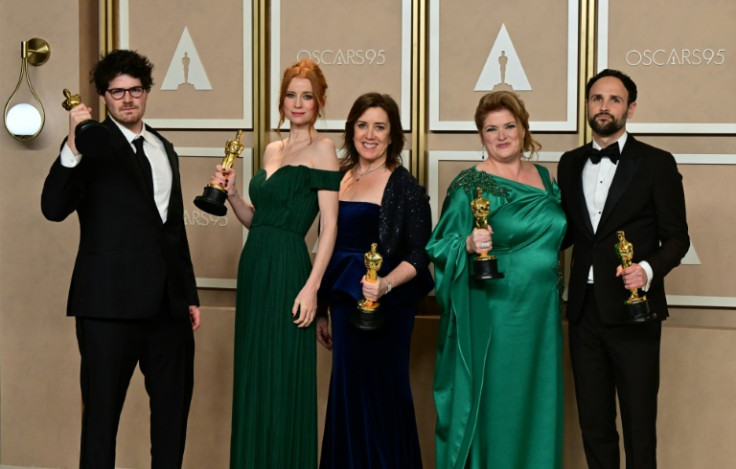'Stay strong my love': Putin critic's wife after documentary on him wins Oscar
The film depicts the life of Alexei Navalny, who has been a staunch Putin critic.

In all the hoopla created by the Oscars this year, one documentary has managed to stand out. Russian film "Navalny" won the Oscar for Best Documentary Feature Film.
The work was directed by Canadian director Daniel Roher. It is based on the life of Russian dissident Alexei Navalny, who has been in jail for the last two years on embezzlement charges. According to his supporters, the charges against him were politically motivated.
His wife, Yulia Navalnaya, was the one who delivered the speech at the 95th Academy Awards on behalf of her husband on Sunday night. "My husband is in prison just for telling the truth. My husband is in prison just for defending democracy," said Navalnaya.
"Alexei, I am dreaming of the day when you will be free and our country will be free. Stay strong my love," she added. She was also joined by their daughter Dasha Navalnaya at the awards ceremony.
In an interview with CNN, Dasha revealed how they are not allowed to contact her father regularly. "We can't really contact him that much, we are only allowed to write letters and the attorneys are only allowed to see him sometime through a veil in his prisons," she said, before adding that her father is very happy that she and her mother were there to represent him and the Russian people at the Oscars.
The film also won a BAFTA last month. It beat other documentaries like "All That Breathes", "All the Beauty and the Bloodshed", "Fire of Love", and "A House Made of Splinters" to win the Oscar.
Alexey Navalny's daughter, Dasha Navalnaya, speaks to CNN about her father's condition on the champagne carpet at the 95th Academy Awards. https://t.co/8nh3W41Xig pic.twitter.com/HKe15S57Rv
— CNN (@CNN) March 12, 2023
The film depicts the life of staunch Kremlin and Vladimir Putin critic Alexei Navalny. He is behind several reports that detail corruption in Russia and the Putin administration.
Navalny is Vladimir Putin's most prominent opposition leader, and has spent the last decade exposing alleged corruption in the president's inner circle. He became openly critical of the Kremlin in 2008 and started blogging about alleged malpractice at some of Russia's biggest state-controlled companies.
As a minority shareholder in five major oil and gas companies, Navalny exposed holes in the state's finances and made a name for himself as an anti-corruption campaigner.
His quick-witted comments on social media, mocking Putin and his allies, won him a loyal following of young fans and made him one of the most outspoken critics of the Kremlin. His vocal opposition to Putin and his party, United Russia, has resulted in Navalny being thrown in jail and an attempt on his life by poisoning with the nerve agent Novichok on a trip to Siberia in 2020. He was sent to Germany for treatment after the poisoning and was brought back after he recovered.
In 2013, Navalny was sentenced to five years in prison for embezzlement. He was found guilty of misappropriating around 16 million rubles (£223,000) worth of timber from a state-owned company. The sentence was described as "unprecedented" by legal experts and was widely seen as politically motivated.
The sentence was suspended several months later, and Navalny launched a bid to run in the 2018 election at the end of 2016. His presidential campaign was thwarted when the 2013 embezzlement charges were revived again at a retrial in December 2016.
The previous case had been annulled by the European Court of Human Rights, which ruled that Russia had violated Navalny's right to a fair trial. He was later charged with a five-year suspended sentence, which he claims is an attempt to prevent him from running for the presidency in 2018.
He was sentenced to nine years in a maximum security penal colony in 2022 after years of tug-of-war with the Russian authorities. He was found guilty of large-scale fraud and contempt by a Russian court. He is currently languishing in a Russian jail.
© Copyright IBTimes 2025. All rights reserved.






















